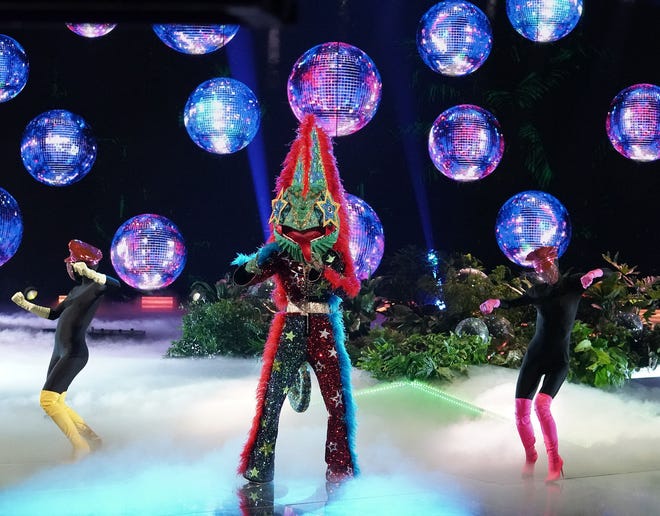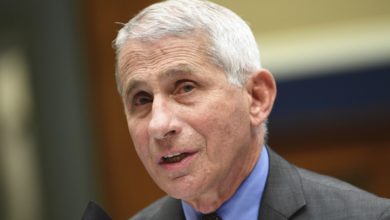
OXFORD, Ohio – Wayne Embry tapped his palm on the wooden chair to his right when university president Gregory Crawford announced Embry and his late wife, Theresa "Terri" Embry, as the recipients of Miami University's Freedom Summer of '64 Award on Tuesday morning in Oxford.
A single red rose lay on the chair to honor Terri, who died in August 2020 at age 82. Embry, the former NBA player and executive who had previously been one of the first Black student-athletes at Miami, said he is only the recipient of about 25% of this award; Terri is the one who was "a great advocate of change," he said. She marched from Selma to Montgomery with Martin Luther King Jr., working towards the passage of the Voting Rights Act of 1965, and fought for racial equity and inclusion for more than 50 years.
"My mother is a legend. My mother is a hero. She is my hero and she is a hero of many that surrounded her," Embry's daughter, Jill Embry, said Tuesday. "And my mother is my heart. So I thank you on behalf of her for this award."
The Freedom Summer of '64 Award honors leaders who inspire advances in civil rights and social justice movements. It recognizes the Freedom Summer training sessions of 1964, when about 800 students assembled in Oxford to prepare to register Black voters in Mississippi. Previous recipients of this award include the late congressman John Lewis and Carolyn Jefferson-Jenkins, a 1974 Miami graduate and former president of the League of Women Voters who spoke at this year's commencement ceremonies.
More: 'A sense of completion.' Miami University honors class of 2020 and 2021 graduates
Miami board of trustees chairman David Budig said he could "not think of a more deserving pair" to receive the award this year than Wayne and Terri Embry.
"Those of us who fight for change today stand on the shoulders of the brave women and men like Terri and Wayne Embry who were on the front lines of the Civil Rights movement in the 1960s," Crawford said. "Advocating for racial justice and equality is never a linear path. It is never easy, popular or safe. But it is always necessary."
Wayne and Terri Embry met at Miami University in the late 1950s, during Terri's freshman year. Embry was a standout varsity basketball player at Miami from 1955-1958, while the civil rights movement was in its infancy.
"My mother was privy to all of the challenges my father had traveling around the country playing basketball," Jill Embry said. "Not being able to go into restaurants with his teammates to eat, having to sit in the bus. Not being able to stay in the same hotels. That impacted who my mother was."
Terri Embry got involved in every community they moved to, Wayne Embry said, as the family traveled for his NBA career. Embry, 84, played for the Cincinnati Royals in 1958, then joined the Boston Celtics in 1966 and finished off his playing career at the Milwaukee Bucks in 1969.
He became the NBA's first Black general manager in 1972 and has continued working in the league ever since. Embry, who was the Cleveland Cavaliers' GM for 13 seasons, is currently serving as a senior advisor for the Toronto Raptors.
"As a sport leadership and management major who is looking to continue making a memorable impact in the sports world, I look to Wayne and Terri as examples who carved their own path during and after their time at Miami," women's basketball student-athlete Peyton Scott said.
Scott turned to give Embry a fist bump before leaving the podium.
If Terri had been alive today, Embry said she would likely sing a song for the crowd of Miami students, faculty, alumni, Kramer Elementary School fifth-graders, other Oxford community members and Embry's former teammates gathered outside of Millett Hall for the ceremony. She might draw references to Diana Ross, Michael Jackson or, her favorite, Marvin Gaye.
"She's looking down upon us now and (is) very, very much excited to receive this honor," Wayne Embry said.
An inspiration to student-athletes
Also on Tuesday, the university unveiled and dedicated a statue of Wayne Embry at the main entrance of Millett Hall.

The statue, which displays Embry donning his Miami No. 23 jersey and posing in his signature hook shot, was created by Tom Tsuchiya, the same artist who created Great American Ball Park's bronze statues of Cincinnati Reds legends.
"Thank you, Wayne, for all that you have done for your alma mater, our communities, our nation and our world," Crawford said during the dedication.
The university has also established a Wayne Embry Scholarship through private donations to support Miami varsity men's basketball student-athletes.
Embry said he remembers visiting Miami as a senior in high school. He said he made "one of the best decisions" of his life to attend Miami after walking through Withrow Court and seeing the photos and names of some of Miami's most famous coaches: Weeb Ewbank, Woody Hayes, Walter Alston and others.
"When (people) walk by that statue I just hope that it inspires them as the pictures inspired me when I chose to come here," Embry said. He hopes it inspires "young student-athletes to try to be the best they can be."
Following the ceremony, Embry said he was "overwhelmed" by the day and all who came out to support him, including some of his former Miami basketball teammates. Growing up on a farm in Clark County, Ohio outside Springfield, he said he had "no idea a day like this could come."
"I came to Miami University and fell in love with the place, and still am," Embry said. "Love and honor."
Source link






